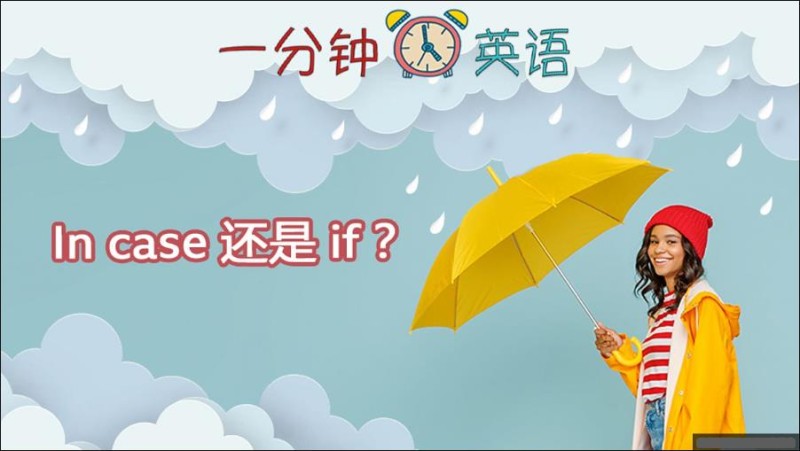内容简介
“In case(以防)” 和 “if(如果)” 都可以用来谈论 “一件事情发生在特定的条件或情况下”,但两者的用法不同。本期 “一分钟英语” 视频通过生活中可能会遇到的两个情景,来辨析这两个说法之间的区别。
文字稿
Hi, everyone! I'm James. We're going to look at the difference between in case and if in today's English In A Minute.
Look at these examples:
1. I'll call you if I need help with my homework.
2. I'll call you in case I need help with my homework.
In the example with if, it means that I might call you in the future, but it depends if I need help or not. The second sentence with in case means I'm going to call you before I do my homework to prevent any problems.

Let's take a look at another example:
1. I'll take an umbrella in case it rains.
2. I'll take an umbrella if it rains.
Just like in our first example, in case means I'm going to take my umbrella anyway to prevent any problems. But in the example with if, this means that you only take an umbrella because it is raining when you leave.
So, if you want to learn more English, join us on social media or on our website. In case you can't remember the link, here it is.
用法总结
1. 当我们想谈论 “为以后可能发生的事情或后果采取预防措施” 时,用 “in case”,表示 “以防,免得”。换言之:做事件 A 是为了防备事件 B 的发生。
I'll call you in case I need help with my homework.
I'll take an umbrella in case it rains.
2. 我们用 “if” 谈论 “如果特定的条件或情况已发生,则针对这个情况采取相应的行动”。换言之:只有事件 B 发生了,才会做事件 A。
I'll call you if I need help with my homework.
I'll take an umbrella if it rains.







